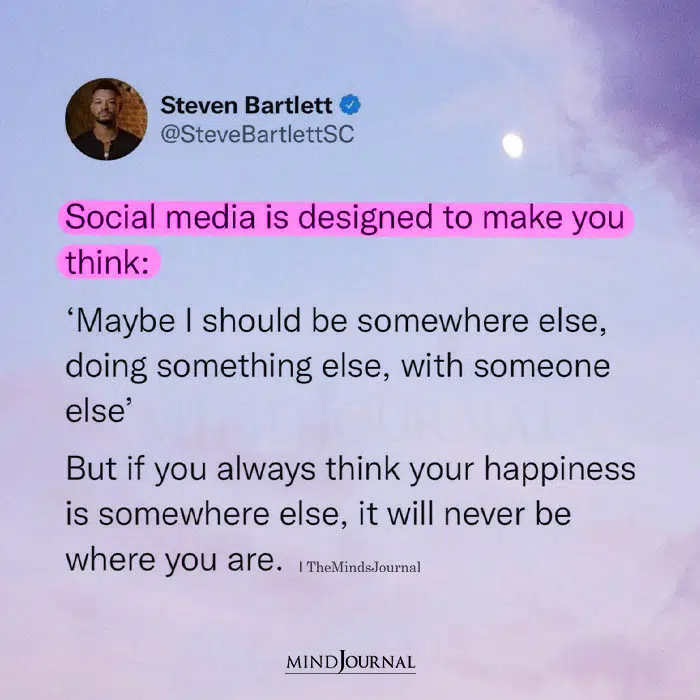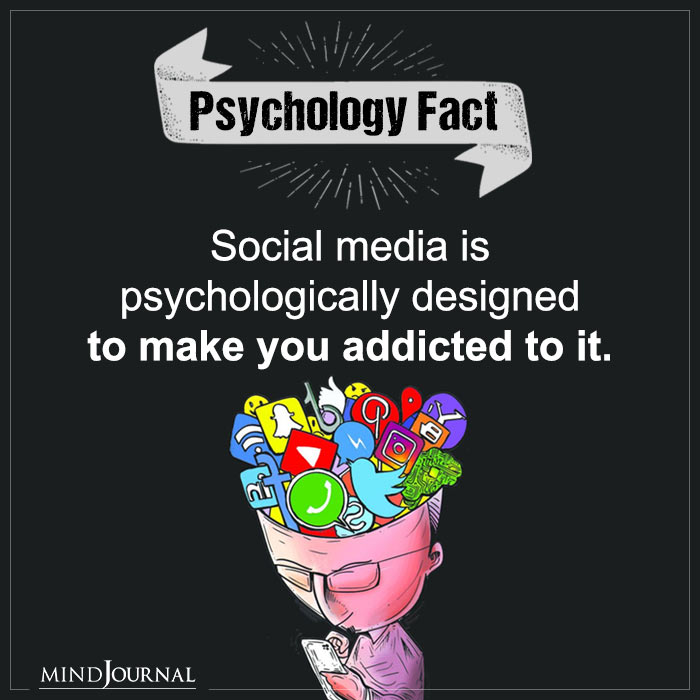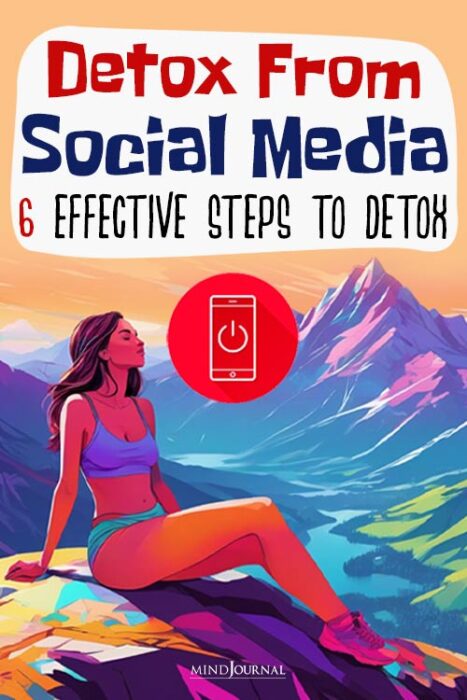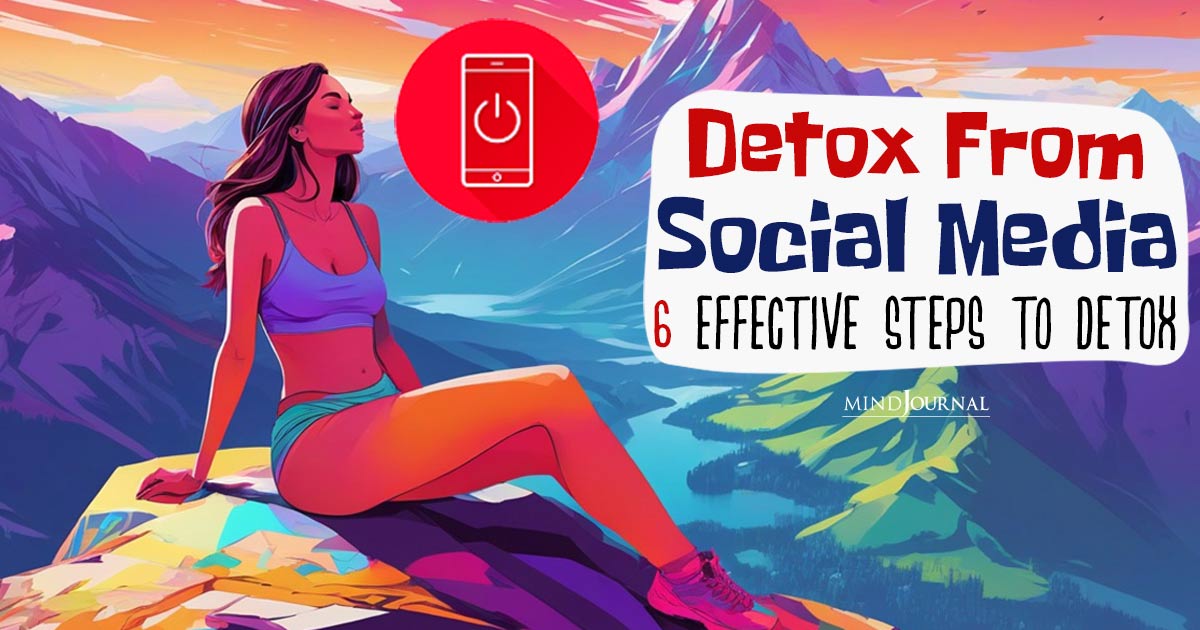Even though social media can be a fun and interesting place to be, how much is too much, really? There comes a point when you need to take a break and digitally detox from social media for improved mental and emotional health. So, how to detox from social media? Let’s find out!
Is the old-fashioned way of communicating and connecting gone forever? Have we succumbed to voyeurism to such a degree that there’s no turning back? Is social media becoming the zeitgeist of today’s world? Only time will tell, but it can’t be considered a trend anymore.
The smartphone has been around for 25 years. The first social media platform, Six Degrees (with 1 million followers), was created 22 years ago. Most of the dominant social platforms that exist today emerged from 2003-2012, including LinkedIn, Facebook, YouTube, My Space, Twitter, and Instagram.
Here are a few staggering statistics that demonstrate the enormous impact cellular phones and social media have had on our lives over the past era:
- There are 3.2 billion social media users worldwide.
- 90.4 percent of Millennials are active social media users.
- People spend an average of 2.22 hours on social media and messaging apps every day.
- 500 million Instagram stories are uploaded daily.
- 91 percent of social media is accessed on mobile devices.
The overwhelming growth of social media, of course, doesn’t affect everyone, but it has influenced the lifestyles of millions of people. Most of my clients, over 85 percent, are negatively affected by social media in some way.
In a 2017 study done by Shakya and Epidemiol at Harvard University, researchers found social media to have a significantly negative impact on social relationships, self-esteem, academic success, and overall emotional well-being. People are comparing themselves to what appear to be flawless versions of other people or influencers.
The study also found there is a direct link between high-volume social media usage, depression, and anxiety.
Related: 8 Signs You Need To Stay Away From Social Media
Fear of missing out (FOMO) is another problem created by today’s social media-driven world. Furthermore, cyberbullying has become more prevalent as tweens and teens use social media as a primary communication tool. Yet social media has become widely accepted as a communication and marketing tool.
So, figuring out ways to navigate a healthy balance between the use and misuse of this technology is an important lifestyle decision. Some of my clients have been open to technology breaks; others have been reticent to do so.
Unfortunately, I’m not able to offer my clients any kind of miracle cure to their social media woes. However, those who have made efforts to turn media use into a choice, instead of a habit, have succeeded in making significant changes in their usage rate.
Taking some time off by exercising abstinence and cleansing also concurrently improved their mood and productivity.

6 Techniques To Help You Digitally Detox From Social Media
Every person needs to make a lifestyle choice that will work best for them as it relates to their consumption and usage of social media. However, if you’re seriously considering a “digital detox,” here are some approaches that might work for you:
1. Turn the sounds, ringer, and vibration off on your phone.
This allows you to commit to certain periods of time without being tempted to look at your phone secondary to an auditory cue.
2. Put your phones in the middle of the table at mealtimes.
Whoever reaches for the phone first pays for dinner or does the dishes.
3. Turn off your notifications on all of your applications.
Give yourself certain times during the day when you check your phone for messages and stick to those times. This gives you long breaks in between when you’re off the phone.
Yes, there will be a build-up of messages during your allotted time, but put the phone down when you’re done going through them.
Related: 18 Reasons Why Social Media Causes Self Hate
4. Put on timers.
There are apps that offer timers that can be set up for total media time or by the application. Put these controls on your phone to prevent yourself from getting sucked into the technology vortex.
Remember, on average, people spend more than two hours a day on their phones. Overuse of media applications can result in impaired relationships, poorer performance, depression, and anxiety. Be honest with yourself as you assess how best to set up your timers. Commit to limiting yourself.
5. Try to utilize looking at social media as a reinforcer as opposed to indulging in it as a habit.
Pick activities you are avoiding and only allow yourself to indulge in social media if you complete the activity.

6. Take a digital moratorium.
I have a surprising number of clients lately who have agreed to digital breaks. They recognize that the apps are causing them increased anxiety or sadness and are open to deleting them from their phones for a designated time period.
Thankfully, the app and data will remain in the “cloud,” so you can download the app again if you wish. Many clients agree to a week-long break. Some have decided to do a week on and a week off.
Others decide to do a second week because their mood improves so significantly. For others, it reinforces the need for restrictions on the phone by using timers.
Related: Unplug To Recharge: 10 Incredible Benefits Of Digital Detox
I’m somewhat pragmatic and feel the old-fashioned way of communicating has been forever lost. However, I remain optimistic we can swing the pendulum back to a place where we can achieve a moderate level of balance between genuine human interaction and technology.
References:
“Study: Social Media Fires Up Brains Pleasure Center, Harvard Study Sheds Light on Popularity of Social Media,” www.lifewire.com, by Leslie Walker, March 22, 2019.
“What Is Social Media Attention,” www.addictioncenter.com, by Jena Hilliard, 12/6/2019, Medical Reviewer Theresa Parisi, 8/22/2019.
“The History of Social Media,” www.socialmediatoday.com, by Irfan Ahmad, April 27, 2018.
Written By Jennifer Guttman Psy.D. Originally Appeared On Psychology Today









Leave a Reply
You must be logged in to post a comment.